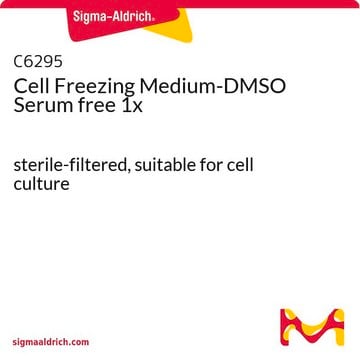推荐产品
生物源
mouse
共軛
unconjugated
抗體表格
purified from hybridoma cell culture
抗體產品種類
primary antibodies
無性繁殖
IFI-230, monoclonal
形狀
buffered aqueous solution
分子量
antigen 85-95 kDa (cluster of three isotypes A, B, and C)
物種活性
human
濃度
~1 mg/mL
技術
immunocytochemistry: suitable
immunoprecipitation (IP): suitable
indirect ELISA: suitable
microarray: suitable
western blot: 0.5-1 μg/mL using whole extract of the Jurkat cell line
UniProt登錄號
運輸包裝
dry ice
儲存溫度
−20°C
目標翻譯後修改
unmodified
基因資訊
human ... IFI16(3428)
一般說明
The gene IFI-16 (interferon, γ-inducible protein 16) encodes a member of the interferon-inducible nuclear proteins family containing one or two copies of a conserved 200 amino acid repeat domain called HIN-200 domain. It has three different isoforms, IFI-16A, -16B, -16C. The IFI-16A isoform is the longest with 785 amino acids. IFI-16B is the most broadly expressed isoform with 729 amino acids and IFI-16C has 56 amino acids lesser. The three isoforms have serine and threonine residues which can be phosphorylated. The N-terminus contains an imperfect leucine zipper domain, where the isoforms homo- and heterodimerize. IFI-16 contains an N-terminal domain called DAPIN/PYRIN/CARD that may be involved in protein–protein interactions. IFI-16 is expressed in some haemopoietic lineages , such as CD34+ progenitor cells, mature lymphocytes and monocytes. The gene is mapped to human chromosome 1q22.
免疫原
synthetic peptide corresponding to amino acids 768-783 at the C-terminus of human IFI-16.
生化/生理作用
The gene IFI-16 (interferon, γ-inducible protein 16) encodes an interferon-inducible transcriptional modulator from the p200-protein family. It may play a role in negative regulation of transcription. Overexpression of this gene in older populations of human fibroblasts leads to cellular senescence. It is also associated with senescence-associated irreversible cell growth arrest in normal human prostate epithelial cells.
外觀
Solution in 0.01 M phosphate buffered saline, pH 7.4, and 15 mM sodium azide.
免責聲明
Unless otherwise stated in our catalog or other company documentation accompanying the product(s), our products are intended for research use only and are not to be used for any other purpose, which includes but is not limited to, unauthorized commercial uses, in vitro diagnostic uses, ex vivo or in vivo therapeutic uses or any type of consumption or application to humans or animals.
未找到合适的产品?
试试我们的产品选型工具.
儲存類別代碼
10 - Combustible liquids
閃點(°F)
Not applicable
閃點(°C)
Not applicable
Brendan Antiochos et al.
JCI insight, 3(18) (2018-09-21)
IFN-inducible protein 16 (IFI16) is an innate immune sensor that forms filamentous oligomers when activated by double-stranded DNA (dsDNA). Anti-IFI16 autoantibodies occur in patients with Sjögren's syndrome (SS) and associate with severe phenotypic features. We undertook this study to determine
Hong Xin et al.
Oncogene, 23(37), 6209-6217 (2004-06-23)
Defects in interferon (IFN) signaling that result in loss of expression of IFN-inducible proteins are associated with cellular immortalization, an important early event in the development of human cancer. Here we report that loss of IFN-inducible IFI 16 expression in
R W Johnstone et al.
Biochemistry, 37(34), 11924-11931 (1998-08-26)
We recently demonstrated that IFI 16, a human member of a family of interferon-inducible nuclear proteins, can function as a potent repressor of transcription. All members of this family are found in the nucleus and contain 1 or 2 copies
Wu Wei et al.
Histochemistry and cell biology, 119(1), 45-54 (2003-01-28)
IFI 16 is a member of the HIN-200 protein family named for their haemopoietic expression, interferon-inducibility and nuclear localisation. These proteins have been characterised as transcriptional regulators that modulate the cell cycle. IFI 16 is expressed in some haemopoietic lineages
R W Johnstone et al.
The Journal of biological chemistry, 273(27), 17172-17177 (1998-06-27)
IFI 16 is a member of a family of interferon-inducible proteins, including the human MNDA (myeloid nuclear differentiation antigen), the recently identified AIM-2 (absent in melanoma), and the homologous murine molecules, p202, p204, and D3. IFI 16 contains a domain
我们的科学家团队拥有各种研究领域经验,包括生命科学、材料科学、化学合成、色谱、分析及许多其他领域.
联系技术服务部门








